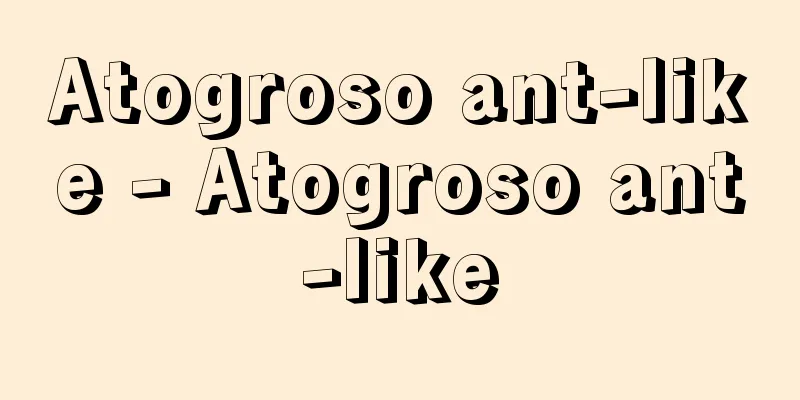The distinction between Imperial Palace and Fuchu

|
...The Minister of the Imperial Household, who was in charge of court affairs, was treated on the same level as the Minister in charge of national affairs under the Grand Minister of State. In 1879, Ito Hirobumi and others abolished the position of Samurai Assistant, which had been established in the Imperial Household Ministry in 1877 as a close aide to the Emperor, on the grounds that it was disrupting the distinction between the Imperial Court and the Ministry of State, and the principle that councilors should not serve as Minister of the Imperial Household was asserted. The abolition of the Dajokan system in 1885 and the establishment of the Cabinet system clarified the distinction between the Imperial Court and the Ministry of State, and the Minister of the Imperial Household was considered to be outside the Cabinet. ... From the Imperial Household Ministry…In the 1869 (Meiji 2) government system, it was established as one of the ministries of the Dajokan system, based on the Taiho Code. When the Dajokan system was abolished in 1885 and the Cabinet system was established, the Minister of the Imperial Household was appointed instead of the Minister of the Imperial Household, but due to the different principles of the Imperial Court and the Cabinet, the Minister of the Imperial Household did not belong to the Cabinet. In addition, the Minister of the Interior and the Imperial Court Advisors were also appointed to the Imperial Court. … *Some of the terminology explanations that refer to the distinction between Imperial Court and Fuchu are listed below. Source | Heibonsha World Encyclopedia 2nd Edition | Information |
|
…そして,宮廷事務を担当する宮内卿は,太政大臣のもとで国政担当の卿と同列に扱われていた。また1879年に伊藤博文らは,宮中・府中の別を乱すという理由で,77年より宮内省に設けられた天皇側近の職である侍補等を廃止したり,あるいは参議が宮内卿を兼任しないという原則が主張されたりした。85年の太政官制の廃止,内閣制の創設は,制度的に宮中・府中の別を明確にし,宮内大臣は内閣の外にあるものとされた。… 【宮内省】より…1869年(明治2)の官制で大宝令に準拠し,太政官制の一省として設置された。85年の太政官制の廃止,内閣制の創設で,宮内卿に代わって宮内大臣がおかれたが,宮中・府中の別の原則によって,宮内大臣は内閣に属さない,とされた。また,宮中には内大臣,宮中顧問官などがおかれた。… ※「宮中・府中の別」について言及している用語解説の一部を掲載しています。 出典|株式会社平凡社世界大百科事典 第2版について | 情報 |
<<: Imperial Court ritual ceremony
>>: Imperial Court Seating Order
Recommend
Alaska Range
A mountain range in the southern part of the U.S. ...
Shunoku Myoha - Shunoku Myoha
A monk of the Muso school of the Rinzai sect duri...
primary wave
…P waves are longitudinal waves that vibrate in t...
Cirsium purpuratum (English spelling) Cirsiumpurpuratum
…[Hiroshi Aramata]. … *Some of the terminology th...
Puy, J. (English spelling) PuyJ
...However, it seems that the term "Fauve&qu...
Interdependence - Sougoishon
A translation of "interdependence." It b...
Tail moss - Tail moss
A large moss of the Scirpium family. It is found i...
Konstantin Georgievich Paustovskiy
Russian novelist. Born in Moscow, he studied at K...
The Rothschilds
A Jewish international financial conglomerate. It...
Montreal Mirabel International Airport
…It is managed by the City of Denver. Montreal Mi...
Euler-Lagrange differential equations
...Here, due to the arbitrariness of the function...
Mercure de France (English spelling)
…All of these were publications by 17th-century i...
Ichikawa Danjuro (9th)
[Born] Tempo 9 (1838) [Died] September 13, 1903. K...
Japanese murrelet (English spelling) Synthliboramphus wumizusume; Japanese murrelet
Charadriiformes, Aukletidae. Endemic to Japan, 24-...
Souvenir doll - souvenir doll
...Also, when imperial envoys went to Edo, their ...









